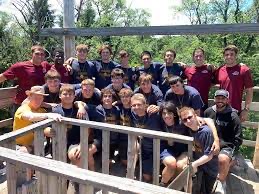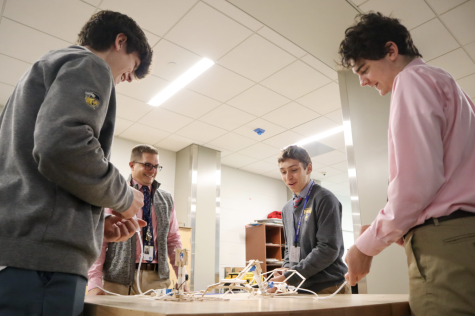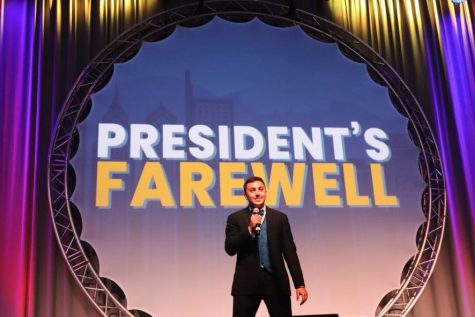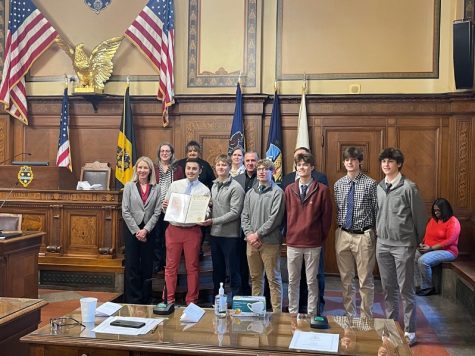The Benefits of Participating with the Boy Scouts
A recent Boy Scout bonfire.
The Boy Scouts is an organization where young boys, aged 10 through 18, turn into men by learning many skills and having experiences that they will remember for the rest of their lives, all the while creating lifelong friendships with their companions.
The Boy Scouts of America was founded in 1910 by Robert Baden-Powell. Scouts do many things including camping, backpacking, hiking, fundraising, community service, and gaining leadership experience.
Scouts are taught three guiding principles for their lives that are recited, under an oath of God, at the beginning of each meeting. The first, and most important, is the Scout Oath, which is:
On my honor, I will do my best to do my duty to God and my country and to obey the Scout Law, to help other people at all times, to keep myself physically strong, mentally awake, and morally straight.
It forms the foundation of the lifestyle of a Scout. Second is the Scout Law:
A Scout is trustworthy, loyal, helpful, friendly, courteous, kind, obedient, cheerful, thrifty, brave, clean, and reverent.
It is a list of traits that any good Scout has and should strive to fulfill. The third is the Outdoor Code:
As an American, I will do my best to be clean in my outdoor manners, be careful with fire, be considerate in the outdoors, and be conservation-minded.
It is the most recently added of the three and explains how a Scout should act in nature. These three oaths are the fundamental pillars in Scouting.
A troop is designed to be boy-led, meaning the Scouts are in charge of most decisions. Scouts are further divided into patrols, where older Scouts teach the younger ones.
The primary leadership position is the Senior Patrol Leader, or SPL, who oversees everyone. He typically has three Assistant Senior Patrol Leaders, or ASPL’s, who assists the SPL in carrying out the mission of Scouting.
Many positions have minimum attendance requirements, both campouts, and meetings, of 50%. The Senior Patrol Leader is the most involved position. It is required to attend a National Youth Leadership Training Conference or NYLT, a week-long leadership training course run by other Scouts about proper leadership techniques, conflict resolution, and how to improve Troop dynamics.
In patrols, there is a Patrol Leader, or PL, who is chosen by their patrol mates to keep the patrol on task and ensure participation of all Scouts. He has an Assistant Patrol Leader, or APL, who assists the PL with his job.
Other positions of responsibility are quartermaster (in charge of equipment), scribe (records notes from the monthly planning meetings), historian (records information about every Scouting event), and troop guide (guides first-year Scouts before they enter the typical patrol system), among many others.
Besides the positions of responsibility, you must earn ranks to progress through Scouting, those being: Scout, Tenderfoot, Second Class, First Class, Star, Life, and the highest and most coveted, Eagle Scout. It is said that only four percent of all Scouts reach the rank of Eagle Scout.
One thing the Boy Scouts do often is camp. Most Troops camp once a month, with a wide variety of activities during each.
Eleven campouts are weekend camping trips, with one being a week-long Summer Camp, during which Scouts earn merit badges and improve their patrol’s cooperation.
My Troop has done hatchet throwing at Camp Guyasuta, skiing, snowboarding, and snow tubing at Nemacolin, Klondike derbies (a skills-based competition between Troops during the winter), biking, hiking, and rowing trips, and many, many more.
Outside of the troop campouts, there are four national high adventure camps: Philmont Scout Ranch in New Mexico, Sea Base in Florida, Summit Bechtel Reserve in West Virginia, and Northern Tier in Michigan and Canada. Each offers different types of expeditions.
A Scout’s motto is “Do a Good Turn Daily,” emphasizing the importance of community service. Scouts serve their communities by running food drives, fundraisers, and other things.
We also collect and retire old and worn-out American flags in the traditional and proper manner, consistent with the United States Flag Code. The most important community contributions are Eagle Scout Projects, which is the main requirement of the Eagle Scout rank and are typically construction-related projects.
My Troop, Troop 90 in Forest Hills, has been meeting weekly on Tuesdays for the past 88 years. Founded in March of 1933, Troop 90 is one of the oldest and has been one of the consistently largest Troops in the greater Pittsburgh area, peaking at around 100 active Scouts.
It has led around 200 young boys in achieving the rank of Eagle Scout. Troop 90 is known for its yellow t-shirts and sweatshirts (commonly known as “Class B’s” that can be recognized by almost any Scout who has been to Summer Camp at the same times as us. Aidan Liddy is a Life Scout in Troop 90, as well as a junior at Central Catholic.
Q: What is your role in our Troop?
A: “I am the Senior Patrol Leader. I am in charge of leading roughly 45 young men through our weekly meetings and monthly campouts, run the monthly planning meetings, appoint and advise junior leaders, and assist adults with running the Troop.”
Q: What do you believe the benefits of Scouting are?
A: “I believe that the benefits of being a Scout are gaining valuable outdoor and communication skills that will be useful throughout someone’s life as well as forming life-long connections with the friends made during camping trips.”
Q: How has Scouting changed your life?
A: “Scouting has changed my life by giving me leadership, communication, and outdoor skills that will remain with me for the rest of my life. It has helped me improve my friendships with fellow Scouts on campouts. One of the most important lessons Scouting has taught me is that it is okay to fail, but how you handle failure is what will define you.”
Q: What was your favorite experience in Scouting?
A: “My favorite experience in Scouting was our recent trip to the Philmont Scout Ranch, an 85-mile twelve-day backpacking experience in the Rocky Mountains of Northeastern New Mexico. I had a lot of fun with everyone in our Crew and made some memories that will last a lifetime.”
















